Physical Address
304 North Cardinal St.
Dorchester Center, MA 02124
Physical Address
304 North Cardinal St.
Dorchester Center, MA 02124
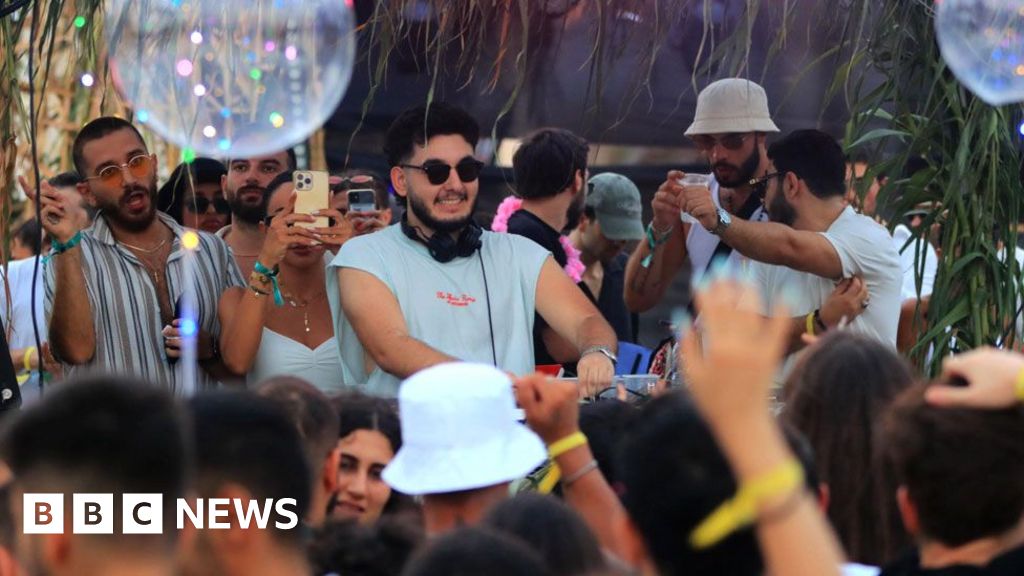
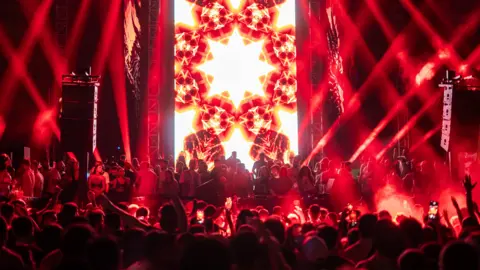 This is an experience
This is an experienceAmid the fight for a new Syria, the country’s musicians are warily eyeing Islamist rebel leaders and hoping to build on their hard-won gains during the nearly 14-year civil war.
The conflict gave energy and focus to a nascent heavy metal scene.
As the fighting subsided, a thriving electronic music and dance performance industry rose from the ashes, sparking a resurgence of Syrian nightlife.
Now, its members are preparing to approach a government led by Hayat Tahrir al-Sham, or HTS, a group with roots in al Qaeda and the Islamic State. HTS said it broke with its extremist past years ago.
“We have to be organized before we go to them, because they are very organized,” said DJ and musician Maher Green. “We are willing to talk to them with logic. We are willing to talk to them with a real proposal.”
Electronic music organizers found a way to talk to security services working for the former president, Green said.
“They didn’t understand that 50 boys and girls would get together and dance in such a ridiculous way,” he said. “We developed a relationship with them over the years so that everything went in a good and peaceful way.”
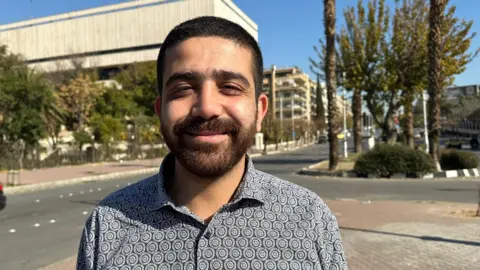
The Assad regime was less tolerant of the heavy metal rockers who founded underground bands in the late 1990s and early 2000s.
They saw it as a subversive Western subculture connected to Satanism.
“I went to the intelligence forces about three times, just because I sold this kind of music,” said Nael al-Hadidi, a music store owner. “They made me sign some papers saying I wouldn’t do it again.”
The scrutiny changed when the brutal repression of the pro-democracy revolution in Syria sparked a bloody civil war.
“Before the war, even if you grew your hair long and wore black t-shirts, metal dance t-shirts, security would arrest you. They suspected you were satanic or something,” al-Hadidi said.
“After the war started, they were too busy to dig this way. They were more afraid of political issues.”
This opened space for the emergence of a vibrant heavy metal scene, the subject of a documentary by Monzer Darwish called Syria Metal is War.
The war may have revitalized metal bands, but it ultimately led to a mass exodus of musicians who felt the country no longer offered a future.
“Ninety percent of my friends are now in Europe, the Netherlands and Germany,” al-Hadidi said, shaking his head.
Wajd Khair is a musician who stayed, but he left music in 2011, when the murder began.
“It seemed like any lyrics I wrote didn’t express what really happened, there are no words that can express what was happening back then,” he told me.
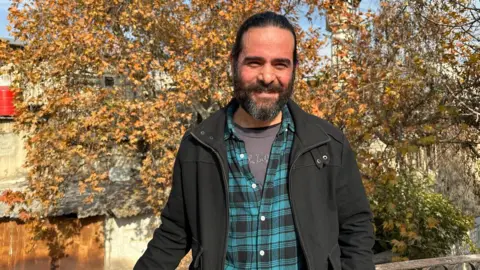
Last year Khair finally started playing and recording again. Now he wonders what Islamist leaders mean for creative freedom.
“We have to be bolder,” he said when asked if he will keep a low profile until the situation becomes clearer.
“We have to be heard. We have to let all the people know that we are here. We exist. It’s not just the Islamic Front and the Islamic State that are here. I don’t think keeping a low profile in these circumstances is good for anyone.” “.
Khair was encouraged by the pragmatism demonstrated in the days after the rebels took power. “The indicators are that, hopefully, we’re going to be in a better position,” he said.
But as he spoke we learned that HTS had closed the Opera. “It’s not a good sign,” if true, Khair exclaimed.
We rushed to the site only to be told by officials outside that it was a false alarm, that the venerable institution would open a week after the rebel victory along with other public buildings.
Without a doubt, the HTS promises to respect rights and freedoms. He seems sensitive to the cosmopolitan culture of Damascus. State television began broadcasting Islamic chants last week, but pulled them in less than 24 hours when social media erupted in protests.
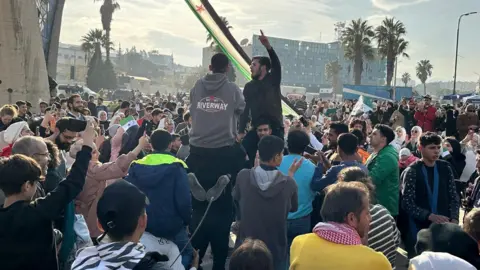
In the square in front of the Opera, Safana Bakleh was trying to perform revolutionary songs with the choir she directs. Accompanied by enthusiastic young people, she gave them her drum and let them sing and sing.
“It may not be an easy road,” he said. “Maybe we have some new obstacles, but we used to have corruption, we used to have dictatorship, we used to have secret police. We still have a lot of hope for the future… because we have a very, very large group of people.” who are the opposition and the artists and actors, musicians and composers and the future of Syria.”
But they do not want to exchange political authoritarianism for religious fundamentalism, al-Hadidi said.
“I hope HTS keeps its words about freedom, because we don’t want to be another Afghanistan or another country ruled by a party or specific rulers who force you to (follow) some rules.”
Determined to remain part of Syria’s future, Green said it is important for the arts community to act quickly.
“It doesn’t seem that in the first week of liberation of Syria (HTS) is willing to look at the cultural side. They have a lot of problems, they are looking at the economy, looking to form a new government.” said.
“We’re trying to get organized before they start looking at the culture. To get there first, (and we need to be) united in our opinions.”
Like others here, Green has been experimenting, mixing traditional Arabic music with electronic beats.
The culture of the Islamist rebels “is religious songs and that’s all,” he said.
“This is a bit backwards for us. We were here in Syria before the war, and inside during the war, (when) we had so many experiments. We evolved a lot. We have a lot of mixed culture.”
Syria’s music scene revived and even thrived during the civil war; Now he faces a new and unexpected test.